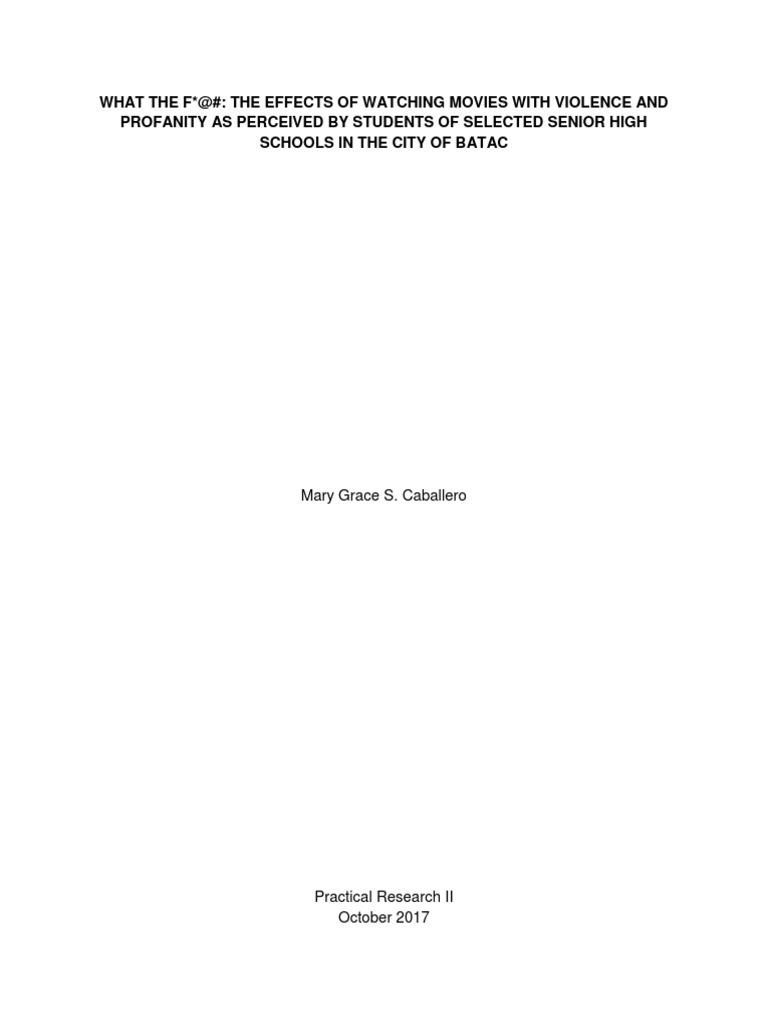The multifaceted interplay between media consumption and its psychological ramifications is an increasingly pertinent subject in today’s society. Within the Bahá’í framework, people are called to engage deeply with concepts that govern human behavior, ethics, and spirituality. This exploration leads us to a contemplative analysis of the effects of violence in video games, movies, and television shows. Such an investigation not only navigates the spiritual ramifications but also poses a paradigm shift in our understanding of entertainment’s role in shaping human conduct and moral frameworks.
At the core of Bahá’í teachings lies the principle of the oneness of humanity. This foundational belief posits that all humans are interconnected and that individual actions reverberate throughout society. Thus, when examining the media’s portrayal of violence, it becomes imperative to consider how this representation impacts collective consciousness. An essential inquiry arises: Do violent narratives in popular media cultivate a desensitization to real-world violence, thereby impeding our global aspirations for peace and unity?
To exploit this inquiry thoroughly, we must dissect the inherent nature of violence as portrayed across various media. The Bahá’í writings encourage adherents to transcend superficial judgments and explore deeper layers of meaning. This leads to an understanding that violence—be it physical, psychological, or emotional—served as a narrative device throughout history, a reflection of societal issues rather than mere entertainment. Violence in media often mirrors the tumultuous struggles of humanity, including themes such as injustice, oppression, and moral decay. Within this context, the Bahá’í perspective urges vigilance. Adhering to a conscious consumption of media, individuals are encouraged to discern between entertainment and the subliminal messages imparted through violent portrayals.
Furthermore, the Bahá’í teachings emphasize the responsibility of individuals in promoting moral education. Media creators are urged to consider the profound implications of their narratives. Are they contributing to a cycle of violence or fostering empathy and understanding? In a world inundated with images of conflicts and strife, the Bahá’í perspective advocates for content that uplifts and educates, nurturing compassion among viewers. This call to moral action underscores the significance of artistic integrity, wherein creators are stewards of societal values.
The physiological and psychological effects of consuming violent media cannot be disregarded. Research indicates a potential link between exposure to violence in video games and films and heightened aggression or desensitization toward suffering. Bahá’í teachings support the notion that individual well-being is intertwined with the spiritual state of society. The impact of violent media on the psyche may foster a culture wherein empathy becomes eroded, jeopardizing our collective quest towards harmony. It invites individuals to reflect upon their viewing habits and question whether such consumption aligns with spiritual principles of kindness, compassion, and unity.
Moreover, engaging with the Bahá’í principle of consultation can stimulate a rich discourse on the role of violence in entertainment. Families and communities are encouraged to cultivate an environment where open discussions on media influence thrive. Such dialogues can unveil differing perspectives, heightening awareness of the repercussions of violent content and fostering communal accountability. This communal drive towards introspection and understanding can lead to a conscientious approach to media consumption and its broader implications.
It is also essential to consider the counter-narratives increasingly visible in mainstream media. Prominent today are stories that champion non-violence and reconciliation. These narratives not only entertain but also educate, offering viewers a glimpse into alternative methods of conflict resolution. In essence, the Bahá’í perspective calls for the cultivation of narratives that underscore the beauty of human resilience and the potential for harmony. Such themes not only resonate on an individual level but can also inspire societal transformation.
As we strive for a paradigm shift, the appeal of empathy, justice, and collective well-being becomes paramount. In line with Bahá’í teachings, the responsibility falls on consumers and creators alike to navigate media consumption thoughtfully. Viewers are encouraged to seek out content that fosters reflection and encourages constructive discourse, thereby promoting an environment where non-violent means of processing conflict are explored.
Prudently, the Bahá’í approach to violence in media advocates a dual responsibility: to engage critically with the content we consume while influencing creators to employ their art in the service of the greater good. By fostering a culture of accountability and compassion, society can shift away from narratives that glorify violence toward those that celebrate the possibilities of peace and understanding.
In conclusion, the Bahá’í lens offers invaluable insights into the effects of violence in video games, movies, and television. By invoking the principles of unity, moral integrity, and community consultation, adherence to these teachings can engender a profound shift in perspective. While grappling with the complexities of human nature reflected in media, we are called to foster empathy and advocate for a future where the narratives we embrace contribute to a more compassionate world. Thus, let us awaken curiosity within ourselves and our communities, harnessing the transformative power of media in a manner that uplifts the human spirit.
